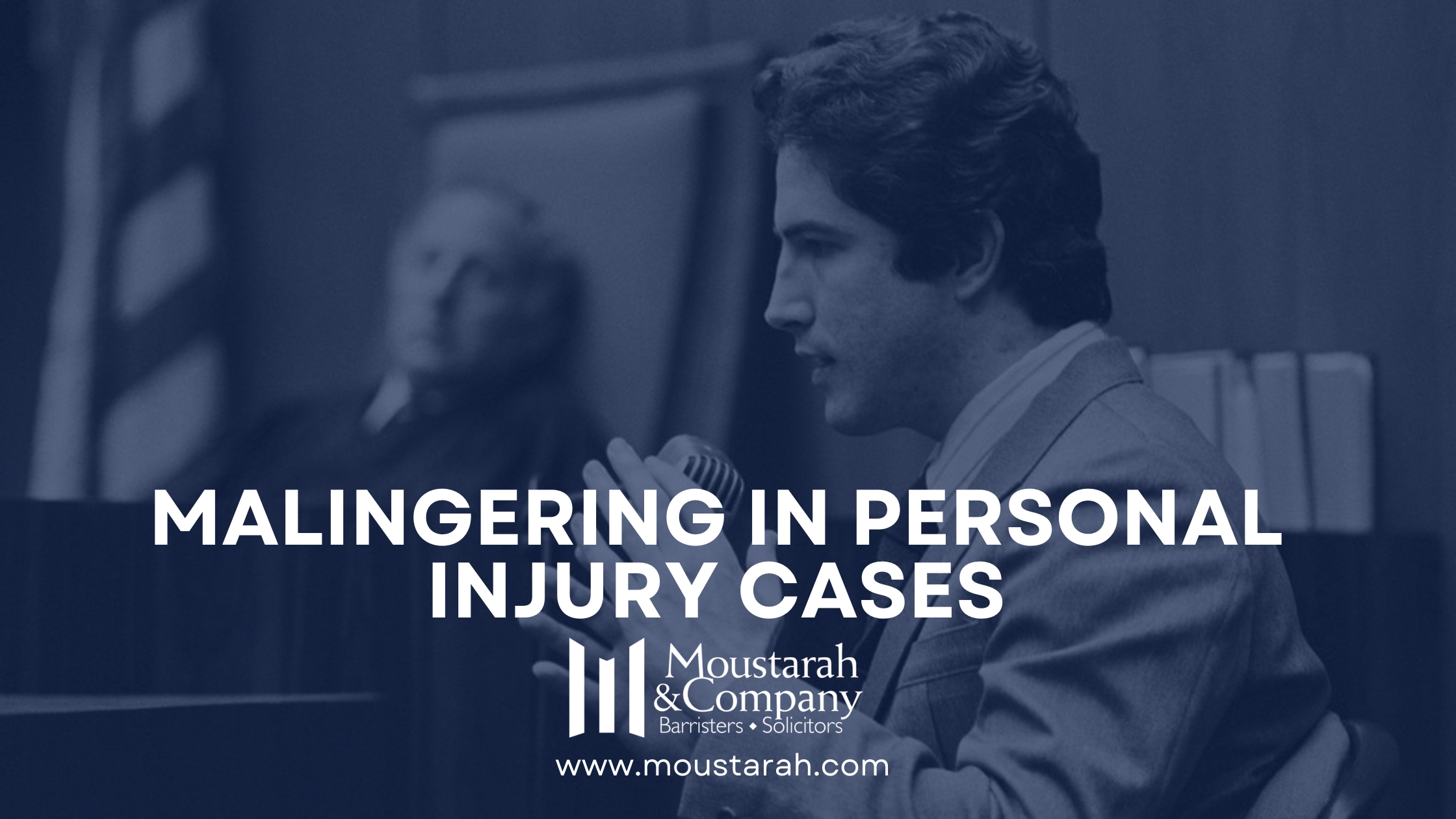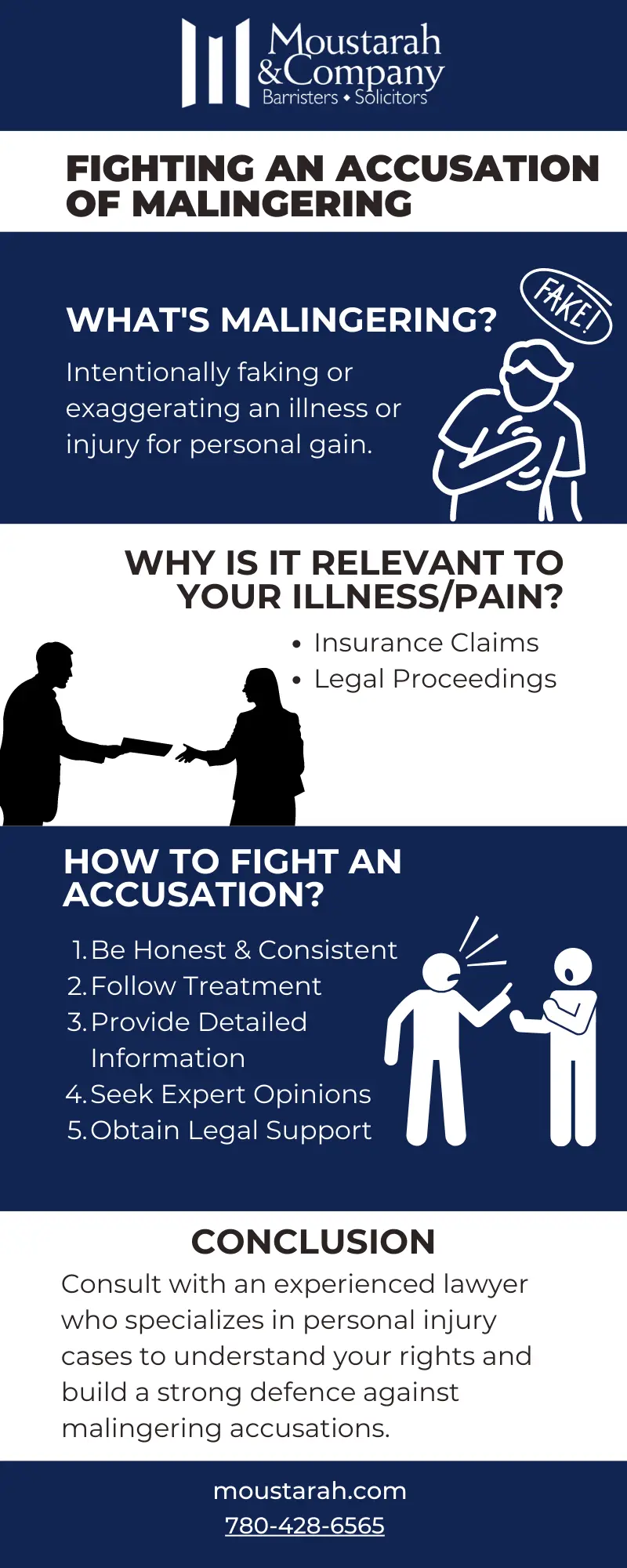
What is Malingering? How Can You and Your Lawyer Fight an Accusation of Malingering?
According to the American National Library of Medicine, malingering is something that occurs when someone actively tries to fake or exaggerate an illness. It could be something that is happening physically to their body, or something affecting their mind, like PTSD (post-traumatic stress disorder). This is different from Munchhausen’s Syndrome (a.k.a. Factitious disorder imposed on self) in that the person isn’t trying to go to the doctor for their attention, but instead, is trying to get some sort of benefit out of lying to the doctor about how hurt they are. This could be anything, like trying to get a leave from school so they don’t have to write their exams, obtaining paid leave from work or trying to get other financial compensation, like in a lawsuit.
Why is this relevant to my illness/pain?
It might be the case that the insurance company doesn’t want to pay you anything because it thinks you are faking how hurt/injured you are. It might say that you are just trying to get some money from it so you’re making it all up. Or, maybe the person you’re suing, the defendant, doesn’t believe you’re as hurt as you say you are and wants you to go to a doctor they choose to prove it. If the doctor the defendant asks you to see (or even your own doctor) determines that your pain/symptoms are being faked or exaggerated, this would be evidence of malingering.
For example, in the 2015 case Bumstead v Dufresne (ABQB 787), Mr. Bumstead got hit from behind by Ms. Dufresne after coming to a stop on the highway. Although he didn’t need to go to the hospital right after the accident, he said that as time passed, he started to feel pain and decided to go to a doctor. He kept seeing doctors after the accident, as he said he felt like he wasn’t able to complete his work while on the job because it caused his pain to “flare up.” Ms. Dufresne, on the other hand, said that he has to be faking how sore he is, and presented to the Court some surveillance video. Ms. Dufresne felt that the video would show that actually, Mr. Bumstead was fine. It included a video of him working on his truck for three hours, in various positions that he would normally claim caused him pain. Ms. Dufresne tried to say that Mr. Bumstead was deliberately lying to doctors so that he wouldn’t have to go back to work and could get more money from her insurance company.
The judge sided with Ms. Dufresne and found that Mr. Bumstead wasn’t being honest with the doctors and with other care providers that were assessing him. Mr. Bumstead was malingering, so he wasn’t able to get as much money as he was hoping to out of the lawsuit.
But my pain is real! Can I argue that I’m not malingering?
Yes! Malingering is not an exact science, and there are experts out there who have said that certain tests used to try and find proof of malingering actually aren’t reliable.[1] One way that you can make sure that you aren’t found to be malingering is to be open and honest with your doctors and be consistent with what you are telling them. Tell them how much pain you have and what helps you.
Make sure you keep going to treatment, like physio or seeing the dentist or doing the stretches the doctor showed you how to do if your team tells you that you should keep going. Your team is there to help you, and giving them the information about what is affecting you can be huge in helping you get the right treatment when you need it, and enable you to argue against being found to be malingering.
[1] Bumstead v Dufresne, 2015 ABQB 787 at para 206.


